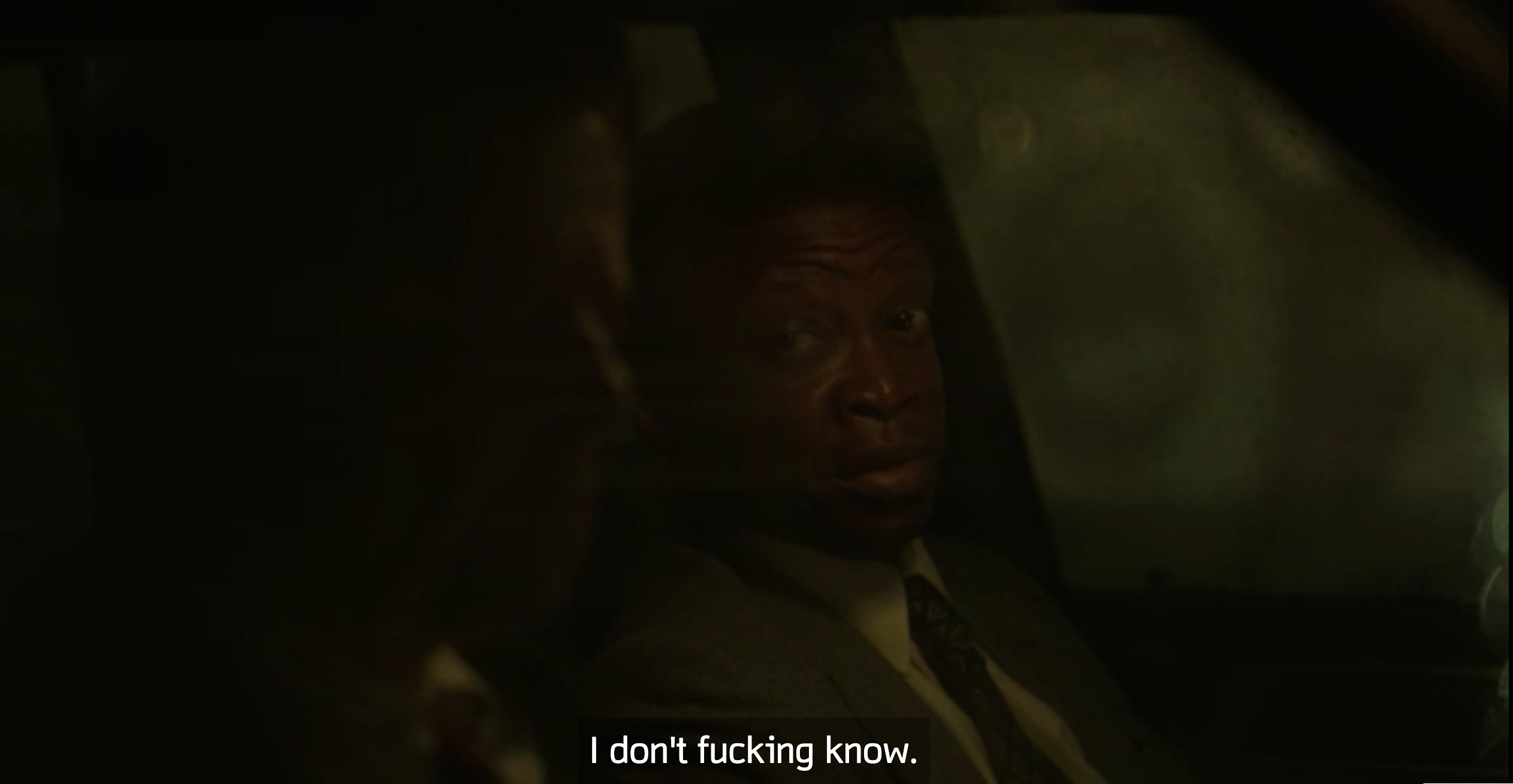93: Stay frosty
The air conditioning dilemma hammers home the almost-comical limits of individual action to solve this global problem

Oceanic birds of South America. v.1. c1936.
--
One thing that is getting difficult that I didn't anticipate but probably should have when writing a newsletter about how people live during global crisis is the fact that there would be a large number of crises to write about and it would become more difficult to know what to focus on when. That's especially true because I never wanted to mail out just a list of horrible things happening that eventually becomes this droning white noise of disaster. But that does mean I periodically feel like I have to start the newsletter by saying, well here's a bunch of horrible stuff happening like right this very second, and then afterwards we can talk about air conditioning for a while. But I guess that is kind of what living amid crisis is like.
So this week, there is the overall peril that the people of Afghanistan are facing punctuated by the recent bombing that resulted from a totally botched U.S. withdrawal from the country and an insufficient to non-existent plan for supporting refugees. And the lesson we seem to be taking away from it is "we will seek retribution" which is what started this whole endless war that killed 47,245 Afghan civilians in the first place, but you know what we will put a boot up your ass it's the American way as Toby Keith once said and that continues to be a fucking awesome way that works every single time.
Also there is a hurricane barreling toward Louisiana, Mississippi and Alabama that is rapidly intensifying so the ninth named storm of the season could be a bad one.
And finally, SB 8 is taking effect soon in Texas, which effectively bans abortion in the state, but in a sadistic twist, allows anyone living in Texas to sue anyone else that they believe is assisting a person in obtaining an abortion, including just giving them a ride somewhere (you can donate to NNAF's fundraiser to support Texas abortion funds here). That bill is actually one of 666 new laws (I am not making that number up) going into effect in Texas on September first, including one that makes so anyone can carry a gun around without a license, one that makes it a felony to block a roadway during a protest, and one that requires the Star Spangled Banner to play before all sports games. To me, nothing signals a state that truly appreciates liberty like the passage of over 600 new laws restricting the lives of its citizenry, fuck yeah Texas is truly putting the boots in everyone's asses keep it up.
--
But speaking of the droning white noise of disaster, I really do want to talk about air conditioning, which has been on my mind a lot lately after a trip to Phoenix, but also as I sit next to my own window unit cranking its way through Boston's fourth heat wave of the summer. Not so much about how air conditioning works or how we can decarbonize it or make it more efficient, but more like what it means to use air conditioning, and how we should feel about it, and also fair warning, I don't really have a very clear point on this one, just some things that have been bothering me.
Recently we got in the car to go pick up some ice cream and started talking about things we are going to miss as climate change keeps getting worse, and I said I wasn't sure but one thing that I really worry about the most is power outages, including during extreme heat waves. During the depths of the COVID pandemic I would sometimes think, god what if we didn't have electricity in the house right now? And the answer is we would have been completely fucked.
A big part of that danger, even more so in places outside of Massachusetts, is the loss of air conditioning, which makes day-to-day life possible in huge parts of the world, at least life as we've come to expect it. Air conditioning is a complicated presence in our lives, because on one hand it can be a luxury, even a frivolity, the cliche of the Californian driving around with the convertible top down and AC blasting comes to mind. From time to time I shudder to think about Chase Field in Phoenix where the Diamondbacks play, which has a retractable dome and a massive HVAC unit that runs even when the dome is open, cooling the 50,000 seat park to 78 degrees in the summer, or the equivalent of cooling 2,500 homes (the stadium has pool and a hot tub too). Some of the richest parts of the Middle East have begun air conditioning the outdoors, including Qatar—one of the fastest-warming places in the world AND the largest exporter of liquefied natural gas—where an open air soccer stadium pipes in cool air through vents at ankle-level and similar systems cool outdoor malls and markets.
In many places around the world, however, air-conditioning is something of a necessity (keeping in mind there's a sliding scale for what one needs) or at least is in very high demand, and that list of places is growing. According to the Department of Energy, three-quarters of all homes in the United States have air-conditioning, which uses 12% of the country's residential electricity use. Air conditioning has become more efficient since it became widespread in the 1950s, and various studies have shown that it pays for itself by increasing productivity (lol) and even preventing fights. But its use is also feeding its own booming demand as climate change worsens. In the U.S., where we already use a ton of AC, that demand is projected to increase by 59% by 2050. One estimate projects global energy demand from air conditioning to triple by 2050. As you can imagine, who gets to use air conditioning is vastly unequal, and the growing demand will only increase the financial burden on lower-income households, or leave them to swelter.
Air conditioning is also a vivid example of the way that cheap and abundant fossil fuel energy has allowed our quality of life and urban development to surge based on the falsehood that we could continue to burn that fuel indefinitely without consequence. It has supplemented growth of cities in the Southwest and South in the U.S. and megacities in the Tropics.
In addition to growing demand, climate change threatens to make it so that more places are becoming literally unlivable without air conditioning. We're learning more about the increased frequency of extreme heat and humidity combining to the point that the body shuts down, with so-called wet bulb temperatures above 86 degrees Fahrenheit becoming deadly and then pushing past the body's capacity to survive when it hits 96 degrees.
So on one hand, air conditioning is this luxury that is used without restraint by the wealthiest cities and countries, increasingly so, and that has allowed unsustainable expansion. It's also a resource that will allow us to adapt to climate change, but will likely cleave society into those who can afford it and those who can't. And finally, you have air conditioning as a necessity. An emergency tool for survival. One of the reasons I've been thinking about air conditioning is that I'm reading Ministry for the Future, in which there is a haunting scene depicted in the near future that I will only partially spoil, involving an act of violence over an air conditioner running on a generator during an extreme heatwave.
--
For all of these reasons, air conditioning makes for a potent example of the strained relationship between our individual lifestyles and the global reality of climate change. Specifically, it's a reminder of the way our actions both feed climate change, but also how our individual behavior cannot stop it. But even worse than that, it demonstrates how climate change makes it impossible to even make responsible or "climate friendly" individual choices.
I would guess maybe 7 years ago, after we had moved into a new apartment that had no air conditioning, we heard about a friend of a friend who was getting rid of a window unit, so we jumped at it. I worked from home long before everyone worked from home, and there was always at least one annual heat wave in Boston when it became impossible to do anything in the house without some kind of cooler. I can't remember exactly why the guy was giving it away, but he was like a middle-aged dude in a bougie neighborhood of Boston, and he was definitely doing so as a lifestyle choice. Like he was quitting AC. I've known plenty of people who intentionally avoided getting air conditioning in places where it doesn't get super hot, sometimes to save money, but other times feeling guilty about it or like it was in indulgence, an impulse I completely share.
It's true that many of us don't really need air conditioning. There is growing research that your body will adjust to heat if you allow it to. And I've definitely lived in places where I didn't have air conditioning and it was fine except for like a few days out of the year and then you just sort of sweated it out and it wasn't bad. There are many places like this, in California, parts of the East Coast, that are kind of on the brink of needing it. In Portland in the 2000s, I used to inflate an air mattress and sleep on our balcony during the annual heat wave, although I don't think that will cut it anymore.
Around the same time we got that window unit, like the mid to late 20teens, there was this glut of think pieces about how air conditioning was awful and we had to quit it, like smoking or eating red meat. Consider the Guardian's "Ditch your air conditioning. You'll be fine," which declared, "A hot room won’t usually kill you, but a hot planet will. If you feel sweaty, just imagine how your grandchildren are going to feel." Or the baldly self-congratulatory, "I don’t need air conditioning, and neither do you," in the Post, which deems Americans (or presumably Americans who are not the author) "greedy and silly" for their reliance on it.
What seems silly to me now, however, after the past couple of years that have shattered heat records all over the world and killed hundreds of people in the recent Pacific Northwest heat wave alone, is the idea of giving up AC back in 2015 as a way to fight climate change. This is sample size myself, but I know several people who completely understandably have started using air conditioning for the first time this summer. We've used our window unit by far more than we ever have, with three heat emergencies and four heat advisories in Boston in 2021. So what did all of that AC abandonment get us, other than the temporary balm of feeling like we were sacrificing something for a good reason?
This part is a tough for me because Americans totally do use too much AC, and too much electricity, we are hogs and it's ridiculous. The impulse to use less is a good and noble one, the right thing to do even. And readers will know that I am actually a believer that individual change is a necessary part of confronting climate change. Solar panels, ditching the SUV, going electric, all for it, for a variety of reasons. I'm also a big believer that local change can add up and cascade into global change.
But the air conditioning dilemma hammers home the almost-comical limits of individual action to solve this global problem. Consider the cruel absurdity of a well-intentioned middle-class person in the Global North having a revelation in 2015 that they had to get rid of air conditioning because of climate change, and then industry and government perpetuates fossil fuel use for another five years, and now air conditioning use is going to spike all over the world because temperatures are becoming increasingly miserable if not dangerous.
In other words, even as more people became aware of climate change and realized they could live without air conditioning, the lack of systemic change has meant that a lot of those people probably have to start using AC once again, along with many more people who never have. It's not just that individual choices alone don't work, when not translated to transformative change, it actually makes it so that responsible consumer choices become impossible.
This gets back to what I was saying about deciding where to live during climate change. We can try to do the right thing, make the right decisions that make us part of the solution and not part of the problem—and you know what we fucking should—but the brutal fact is, our individual lives may very well be simply engulfed by the failure of institutions and the cruelty of industry.
And that's what I've got for today, goodbye!
Just kidding, but kind of not kidding. I don't really have a take-home point on this one. It's very confusing and upsetting and one of the most difficult parts about being a person who likes to feel in control in a world where we are all losing control. But maybe one point here is the reminder that so many of us are still thinking we can deal with this problem in the margins. And even those of us who know that's not going to cut it can still only really do things that are in the margins. But the changes ahead are not marginal.
Nobody should feel bad about giving up air conditioning and then feeling like it's pointless, and nobody should feel bad about wanting to live in comfort, but it's hard to avoid either. One of the toughest lessons about living with climate change is that, though it may not be your fault, and the solution may not be within your personal grasp, how you are currently living is most certainly causing it, and how you are currently living is going to radically change because of it.
--
Watching
Speaking of helplessness in the face of failing systems, I just finished the third and final season of The Deuce from David Simon and crime writer George Pelecanos, and I liked it maybe just as much as The Wire. If you haven't seen it, whatever you think the show is, I can almost guarantee it is much more. It might not be for everyone, mainly because it's largely about sex work and is a bit on the naked side at times, but like The Wire, it's about the failure of institutions, even when they are made up of well-intentioned people. And on the much more fun side, it's about the completely bonkers world of New York nightlife in the 1970s and early 80s, from the tiny punk bars to giant disco clubs.
It's also very Crisis Palacey, in that just as it is about how futile it is to try to change systems, it's also about always fighting and how change does in fact happen, just in ways we don't expect, and how people always take care of each other and find joy even in the worst conditions.

Me when you ask me the point of this week's newsletter
--
Reading and Listening
I read this cool little book that I picked up in Tucson called Rez Metal: Inside the Navajo Nation Heavy Metal Scene, which is actually a companion to a documentary by the same name that I haven't been able to track down to watch yet. So it's not exactly a book, more like an oral history told through transcribed interviews they conducted for the documentary. But it focuses on this one band I Don't Konform, which recorded an album with this guy who produced a bunch of Metallica's records so it was a real breakthrough for a metal band from the reservation.
But the best part of it all is the just raw energy and love that all of the bands and their fans have for the music, which is hugely popular among Diné youth. Their shows are in tiny DIY rock clubs and sometimes fairgrounds, but they also do these Rez house concerts where they literally just set up and shred in people's living rooms. My favorite little detail is that there is a popular band called Testify, and the drummer is Edmund Yazzie, who is the singer's dad and also a member of the Navajo Council. It is such an awesome fucking scene that provides a much needed outlet for people. As the DJ at one Gallup radio station says, "What does metal mean to me? Metal is justice."
I figured I would link a song by I Don't Konform from their album Sagebrush Rejects, which has an incredible album cover (below), and has some great songs including the title track and "Hungry for War" and the Andrew W.K.-like anthem "WE R I.D.K." But the most appropriate song for Crisis Palace is hands down "Environmental Punk Asses (E.P.A.)" Enjoy.

You can stream IDK on all platforms and they have a Facebook account that's updated with dates and clips, they play around Phoenix for AZ readers. You can also donate to the Native American Music Fund, which is featured in Rez Metal.
--
No links today got a late start and have run out of steam. I guess I would be curious to know what you all think about air conditioning. Do you use it? Do you feel guilty about it? Do you feel guilty about not feeling guilty about it? Are you reading this from inside of an air conditioned baseball stadium's hot tub and couldn't give a shit?
I do have an update on our senile dog, aka my elderly son. And that is, he is doing much better. Some time with the grandparents really helped his schedule and we've managed to keep him on track so much better sleep at night. But then he did have to go to the emergency vet last week because he had blood in his pee and then turned out he needed an enema it was this whole thing. He's better now.
Jamie also had to go to a dermatologist and the one she picked was named I'm not making this up Doctor Doktor and I thought Jamie should walk in and sing Doctor Doktor give me the news I got a bad case of allergic reaction to sunscreen! But I don't know she's probably heard all the jokes so better to just be respectful of Dr Dr.
And now I'm basically just typing a bunch of stuff about doctor visits which is probably some kind of HIPAA violation so I will stop. I hope you and your dogs are staying healthy out there and that this newsletter is like a refreshing breeze.
Tate

